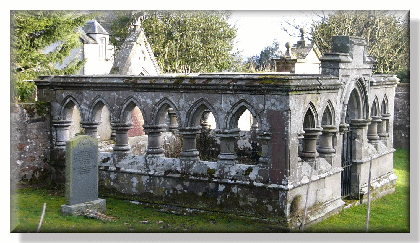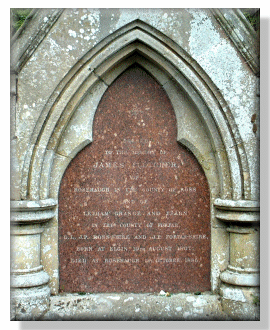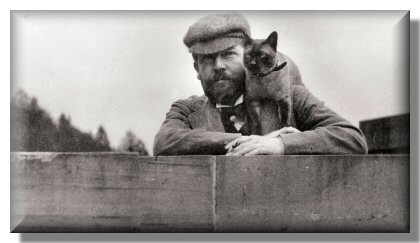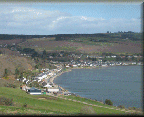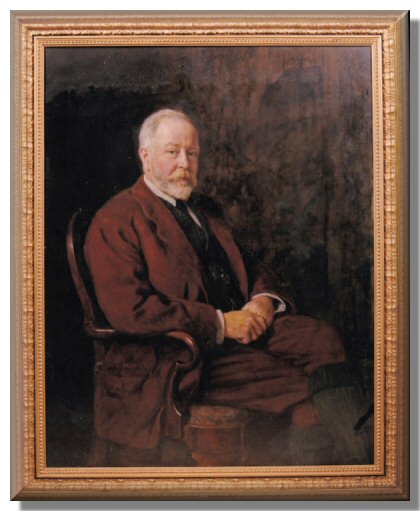
James Douglas Fletcher was born in 1857, the fourth child of James and Frederica Mary. He was educated at Eton and gained a degree in law at Oxford. Both James Douglas and his brother Fitzroy Charles received annual allowances from their father’s estate of £5,000 and £6,000 respectively, and the use of the family homes, but the residue was to remain in trust until they were 35. James Douglas inherited Woolton Hill House in Liverpool and the Rosehaugh estates, whereas Fitzroy Charles inherited Letham Grange in Forfarshire and Fern.
Though James Douglas inherited the two properties, he preferred to pursue his sporting and agricultural interests in the highlands and he let the house in Liverpool to various tenants before finally selling it.
On inheriting Rosehaugh Estate James Douglas followed his father’s example and was an interested and benevolent landowner, continuing and extending the improvements already begun. His greatest achievement must be the rebuilding of Rosehaugh House, a project which lasted several years but which resulted in a magnificent mansion. This was completed in 1902.
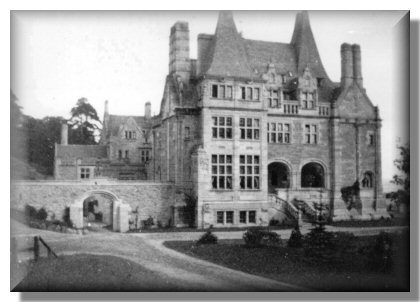
Rosehaugh was a magnificent property by any standards, and James Douglas was a most eligible bachelor. But in 1890 the house lacked a mistress. Fletcher’s attentions were attracted by the vivacious Nellie Bass, heiress to the Bass brewing fortune but the alliance was never formed. On visiting the house at Rosehaugh, she was reported to have said, “My father provides better accommodation for his horses”.
In handling the estate, James Douglas was a rich and progressive landlord . He was greatly helped by his factor John Henderson. James Douglas found the financial world both fascinating and absorbing and showed considerable financial talent. He owned several estates in Ceylon which were used mainly for the production of tea and coffee. With great foresight he saw possibilities in rubber and bought more estates in Ceylon which gave him rubber sources. He later formed the Rosehaugh Rubber Company. He named his private bungalow in Ceylon, “Fortrose”, and one of his estates was called Culloden.
In 1904 he looked at opportunities in Africa, and bought an estate in the Eastern Transvaal which he planned to exploit for its timber potential. The estate thrived, and he sold it to the factor of the estate.
For a number of years, James Douglas was a director of the Highland Railway company. He felt strongly that easy access to the remote parts of the Highlands could be achieved by laying a light narrow gauge railway. During his time as a director, the Black Isle Railway, running from Muir of Ord to Fortrose, was opened, and he had his own personal halt at Rosehaugh.
Locally he was a well-known figure and name. He became chairman of the school boards of Avoch and Rosemarkie and also chairman of Avoch and Rosemarkie Parish Councils. As chairman of the school boards he was generous to the local schools. Having laid the foundation stone of the new Fortrose Academy, he donated its tower clock.
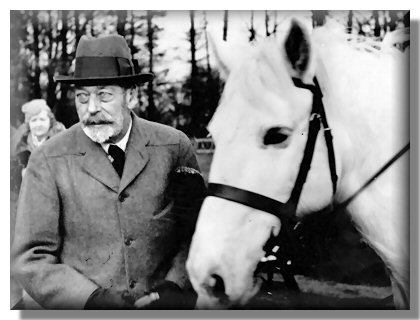
His innovative ideas covered many aspects of life on the Estate, making it virtually self-sufficient. The Dairy, the Power House, the Greenhouses and the Slaughter House were all important in making this self sufficiency. In agriculture he experimented with growing different grasses and grains, and he introduced pedigree herds of Aberdeen Angus and Shorthorn cattle, both of which he bred very successfully. His herd of Jersey cows was the first one known in the Highlands and his success in breeding horses was evident in his stables. Of all the different breeds of animal introduced, the highland pony stud at Rosehaugh achieved the greatest prize when “Jock” (shown above), bred from Rosehaugh stock, became King George V’s favourite pony. Jock was so highly regarded that he had the honour of following his master’s funeral carriage.
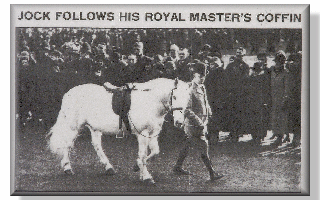
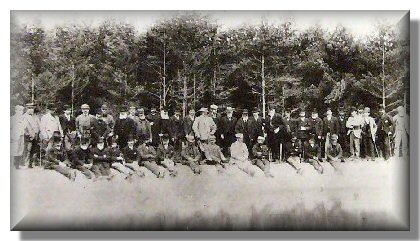
James Douglas Fletcher did much to help and support the Avoch community. In 1893 he was instrumental in bringing water to pumps situated at strategic points throughout the village, and piped it into some of the houses. He also improved drainage and sewerage in the village, and, in the interests of hygiene, had a piggery built to accommodate the pigs owned by the local people. So wide were his interests that he became a patron of local sporting groups, sat on governing bodies of the local churches, and became involved in raising money for the harbour extension in 1903 by organising a three-day bazaar at Rosehaugh for this purpose.
In 1854, Alexander George Mackenzie, son of Sir Alexander Mackenzie, opened a woolen factory, where Rose Street is now. Its fortunes had fluctuated for many years under various owners and in 1895, James Douglas Fletcher formed the Avoch Tweed Mill Company. He soon realised it was not a commercial enterprise, and had the building converted into much-needed local living accommodation. He continued the improvements begun by his father and had street water pumps installed.
He often helped individuals to make a new start in life and it is still mentioned that he would never have any villager evicted for inability to pay rent.
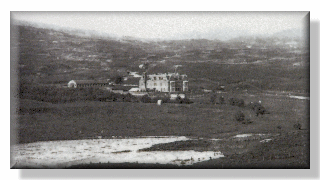
James Douglas Fletcher’s life long passion was for sporting pursuits, which explains the wide range of facilities at Rosehaugh. Curling, skating, tennis, cricket, swimming, duck-shooting and horse racing could all be indulged in. He built Pitmain Lodge near Kingussie so that he could enjoy his love of grouse and deer shooting and it was here that he took ill prior to his death in 1927.
